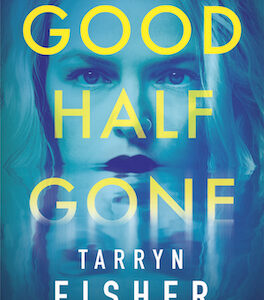It’s a sensible writer who pays close attention to the clichés of their chosen genre, however untrue or outlandish they might be. If you want to go off-piste, even for a few pages, you first need to know what on-piste looks like—you need to know the location of the flags that mark the route most commonly taken.
In the case of espionage, what are those flags? That spying is a dirty game played by gentlemen. That agents roam the world dispensing a violent justice. That they operate with near-total independence from the agencies that employ them, agencies that are all-knowing and all-seeing, uncoupled from any legal framework and with access to frontier-busting technology (rather than vast, creaking bureaucracies with a poor track record for spotting the next big threat in time to do anything about it).
As someone who has recently exited the profession, there’s one cliché that preoccupies me these days above all others: that it’s impossible to leave. Something happens to the spy in the field, or so they say. They are branded, their DNA is reconfigured, they lose all capacity for innocence and wonder. They see things they can’t unsee. They become enmeshed in a web of legal obligations, signed in blood, that require them to abandon their new lives and return to operational duty when the call comes through. Whatever the reason, theirs is a uniquely hard profession to walk away from. Once a spy, always a spy.
Can this possibly be true? I know of spies who have left the profession to become schoolteachers, doctors, lawyers, police officers. I remember one who became an acrobat, another who teaches poker. The former chief of MI6 is now a podcaster. As far as I am aware, none of them have been stalked down by disgruntled ex-agents or called back in to be interrogated about what really happened on the Polish-Lithuanian border in 1976. What’s more, many spies leave the profession because they’re tired of the secret world; they pass through the door marked ‘exit’ at a sprint. They can’t wait to shrug off the habit of secrecy and do something they can talk about over the dinner table. The idea that these people are marked for life, that they will always be defined by that one job, is surely absurd.
Let’s remember too that the agencies have a stake in keeping the ‘once a spy, always a spy’ idea alive. They want their former employees to consider themselves still on the team, since they constitute a vast, skilled, invisible and cheap workforce that can be mobilized at the drop of a hat, a workforce that can be relied upon to grant a quiet favor or share any useful intelligence they come across.
Just as crucially, the agencies want their former employees to remain mindful of the penalties imposed on those who disclose state secrets. The ‘once a spy, always a spy’ line can be spun two ways: if you’re on the team for life, then you’re bound by team rules for life. This is surely what Putin had in mind when he said that there was no such thing as an ex-KGB agent, as Alexander Litvinenko and Sergei Skripal found out to their cost.
We’re agreed, then: it’s a myth. The idea that you—that I, more to the point—can’t make a clean getaway is just another fanciful story told about the world’s second-oldest profession. For some reason, though, I have found myself writing a novel —The Man in the Corduroy Suit—in which no one gets away cleanly. The spy who is poisoned, the spy who investigates the poisoning, even the spy who allegedly did the poisoning—none of them finds a way to transition smoothly into civilian life.
While writing the book, I found myself thinking about another ex-spy. In The Honorary Consul, a hostage—Charlie Fortnum —watches from the corner of a dark hut as his kidnapper cooks eggs. Graham Greene (MI6, 1941-1944) writes: ‘As he held two half shells over the pan there was something in the position of the fingers which reminded Fortnum of that moment at the altar when a priest breaks the Host over the chalice.’ Fortnum later challenges his kidnapper. ‘Once a priest, always a priest, Father. I spotted you when you broke those eggs over the dish.’
‘Once a priest, always a priest’. Doesn’t this ring true? Aren’t there in fact some professions that seep into the bones? And in an ideal world, don’t we want this, don’t we want to do jobs that change us and stay with us, as evidence that they’re worth doing in the first place, that we’re doing them properly? What kind of priest would shed all their priestly qualities upon leaving? And what kind of spy?
***


















